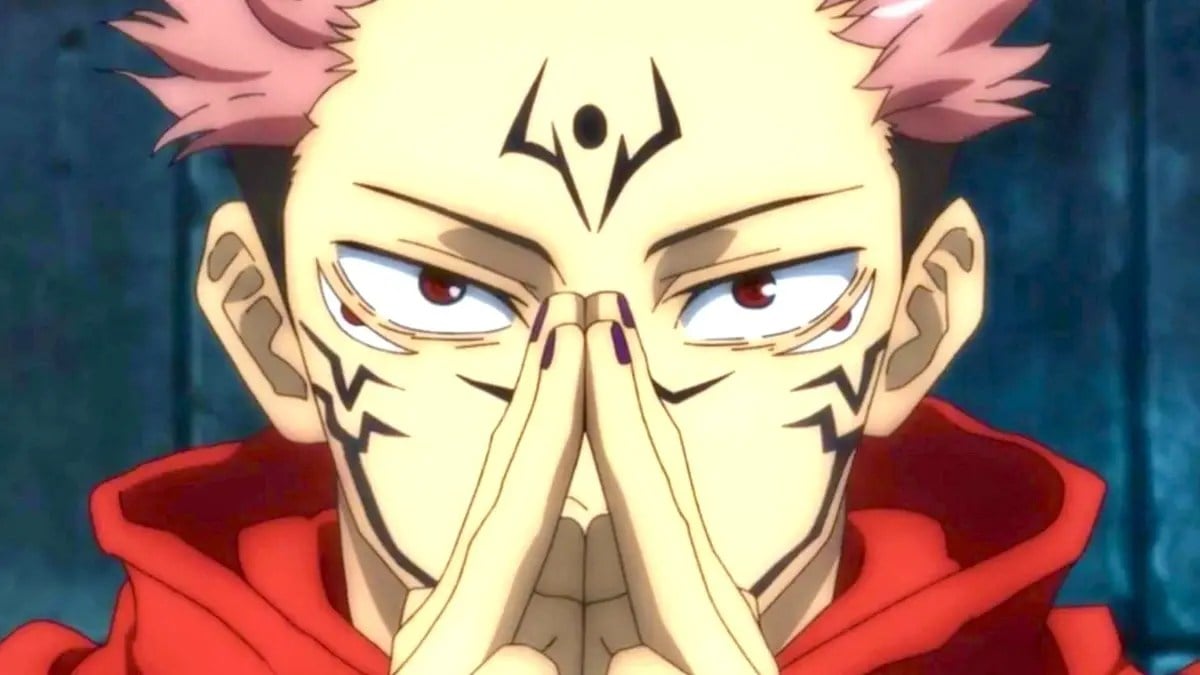In Jujutsu Kaisen, cursed spirits and sorcerers clash in a battle for survival, and the Domain Expansion technique stands out as a formidable and complex skill.
Among the powerful characters in the anime, Sukuna, the King of Curses, possesses a particularly intriguing Domain Expansion called the Malevolent Shrine. In this article, we’ll unravel the meaning behind Sukuna’s Domain Expansion, the hand sign, and its cultural significance.
Breaking down the Malevolent Shrine
True to its name, the Malevolent Shrine creates a space centered around a diminutive, distorted Buddhist Shrine that has been transformed to serve as a haven for demons. The domain expansion’s sure-hit ability ruthlessly shreds anything within its effective range until nothing remains. In Sukuna’s battle with Mahoraga, his domain expansion is seen to have razed Shibuya to the ground.
Using his Domain Expansion, Sukuna can employ two distinct slashing attacks- Dismantle and Cleave- both of which persist until the domain is either disengaged or Sukuna is fatally injured. Sukuna also possesses the ability to designate the type of attack based on the nature of the target, opting for Dismantle against inanimate objects and Cleave for subjects infused with cursed energy.
Sukuna’s domain expansion hand sign
Gege Akutami, the creator of Jujutsu Kaisen, is known for injecting Japanese myths and Buddhism into the story, and he doesn’t fail to input this into Sukuna’s powers as well. Legend has it that during the Heian Era, Sukuna was purportedly an Imaginary Demon. However, it is later revealed that Sukuna was a sorcerer alternatively known as the Disgraced One. The character is evidently based on a demon figure in Japanese mythology, said to have two faces, four arms, and immense power.
Sukuna’s hand sign for Malevolent Shrine takes inspiration from Buddhism, as it corresponds to a hand sign held by Emma Ten-In, the King of Hell. This king also goes by the name Emma-ō or Yama in Hindu mythology. As the king of hell, Yama presides over the judgment of souls, like Sukuna who is known as the King of Curses.
Notably, legends suggest that before ascending to the throne of the Dead Land, Yama was once a human. This is replicated with Sukuna, who went from being a human shaman, to a curse. “Sukuna,” from Japanese legends, which serves as the character’s inspiration, is also believed to have once been a human. With all these crossovers, it makes sense that Sukuna’s Malevolent Shrine hand sign comes from Buddhism. It suits his character quite well and is a great representation of who he is, as well as the myths that created him.
Conclusion
Sukuna’s Domain Expansion hand sign is a meticulous blend of symbolism and power, reflecting the essence of his character and the depths of his hostility. As audiences continue to follow the ever-expanding world of Jujutsu Kaisen, whenever Sukuna deploys his Domain Expansion, this hand sign remains a visual cue that adds depth to Sukuna’s formidable existence and presence. With each use of Malevolent Shrine, fans are treated to a mesmerizing display of sorcery.

